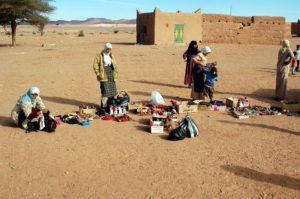Blog
Why Should Men be Involved in Gender and Development Work?
Written by Nasra Hassan
September 18, 2017
The involvement of men and masculinities in development work is vital for gender equality as in some societies men can exercise enormous control and power over women’s lives. The Gender and Development (GAD) approach to development work gained momentum in the 1980s and it’s initial purpose was to aid feminists in understanding development. It was used to help understand the social, political and economic realities of only women and girls in the Global South.
One of the concerns outlined by a GAD approach is that bringing men into GAD work may further undermine feminist political agendas, and risk diminishing the hard-won gains of feminism. Some feminists like Dr. Adam Jones (2006) have argued that GAD may allow men to dominate GAD work, since patriarchal values and practices remain dominant in many societies. He is also concerned that men may become saviours towards GAD goals and has a fear that GAD may return to the period where there was not a focus on women’s issues (i).
Why should men be involved in Gender and Development work?
In order to examine gender inequalities, we must explore the role of masculinity.
Masculinity is a social construct; its definition is complex and changes in different contexts. It is not an innate behaviour; rather it is socially learned. Masculinity relates to the perceived notions and principles of how men should act in any given situation. In many societies, masculinity embodies dominance, strength and hyperactive aggressiveness. By this very nature, being born male can give you innate access to power and resources (i).
Men and boys can be affected by the constraints of masculinity and demanding gender roles as they can be pressured into performing into their perceived dominant roles, which can be difficult for anyone who does not fulfill this expected position. This can lead to self-doubt, insecurity and in turn aggression, which is often aimed at women (i). Such masculinities can further subjugate women by giving them less access to benefits, recourses and political agency.
It is therefore crucial to understand the dynamics of power and privilege faced by men and women; and women’s lives in relation to the men in their communities and daily lives.
Deconstructing machismo in Nicaragua
In 1994 the Nicaraguan NGO Centre of Communication and Popular Education (CANTERA) looked at ways of deconstructing and transforming machismo (v) and concluded that men need to enter a process of critical self-reflection and delve into the realms of their own subjectivity, to transform machismo and prevent violence against women (v). CANTERA used a method of popular education, which included workshops on gender mainstreaming, and for men to reflect on their reality, and analyse the power and violence of masculinity, gendered responsibilities, encouraging a space to reflect in order to shape the right relationships.
CANTERA’s research on gender and masculinity included the collective work of hundreds of men in Nicaragua and other parts of Central America who were invited to embark on a journey of self-discovery and self-reflection. Courses were made to evaluate the effects masculinity had on the lives of these men, many of these men said they were inspired to change after the end of the course.
The following are typical examples of some of the feedback:
“To avoid the use of violence it is important first of all to recognize the violence that we do use against women, in the family and in society, however insignificant we may consider that violence to be. If we become aware that we are violent, the desire to avoid it is a sure sign that things are going to be better and that we are going to live a more dignified life” (vi).
“What I liked most (about the course) was that the majority of the men shared the same concern: a desire to change our own depressing reality and improve the way we relate to women” (vi).
The inclusion of masculinities in development work is vital for gender equality, as many feminist initiatives have focused on preventing inequalities against women without including men who may perpetuate, witness or assist gender inequalities. The work carried out by CANTERA and other groups that focus on transforming masculinities signals a hopeful future for gender equality.
References
(i) Masculinities: Male Roles and Male Involvement in the Promotion of Gender Equality (2005).
(ii) Dr. Adam Jones (2006). Men of the Global South: A Reader.
(iii) World Development Report 2012- Gender Equality and Development.
(iv) Men Against Violence Against Women (2000) http://mavaw.org/.
(v) Centre of Communication and Popular Education (1994) www.canteranicaragua.org.
(vi) Patrick Welsh, (1992) Men Aren’t from Mars.
Nasra Hassan was an intern at LIDC in September 2017.

